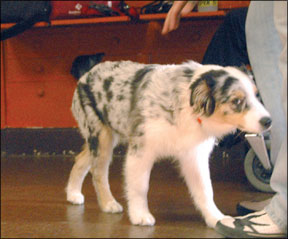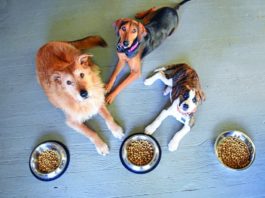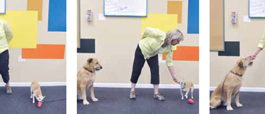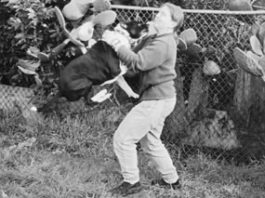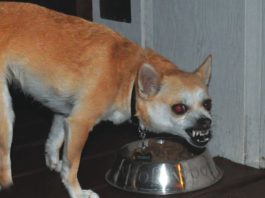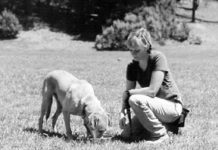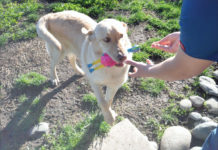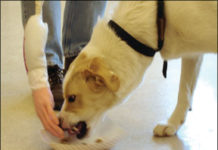Living with a Difficult Dog
By your own standards, your dog’s life may not seem all that stressful – after all, he doesn’t have bills to pay, does he? But when you apply the more scientific definition of the word – anything that alarms or excites him, triggering his sympathetic nervous system into action and flooding him with the “fight or flight” chemicals adrenaline and noradrenaline – you may be able to see how many seemingly unrelated things in his environment actually contribute to his “misbehavior.”
Eliminate Aggressive Dog Guarding Behaviors
It’s most common for dogs to defend their food, but edible items are not the only things that dogs will keep from all potential rivals. Some dogs will defend their “ownership” of toys, a favored place to sleep, or the water bowl. Behaviorists and dog trainers call these protective behaviors “resource guarding.” A dog who defends his food from other dogs is exhibiting a perfectly normal and appropriate canine behavior. In the wild, where food supply equals life, the dog who gives up his food easily has a poor chance for survival. Resource guarding is far less acceptable, of course, when it’s directed toward us.
Trading With Your Dog to Combat Resource Guarding
It's important to be able to ask your dog to give something to you, especially something he is not supposed to have, and especially if you're frequenting public places where he might pick something that belongs to someone else or that might be harmful to him. If you only take things away that are forbidden to him, he'll learn to play the keep-away game, or worse, he may learn to resource-guard. The trade" game will help you avoid these problems."
Unwanted Dog Food Guarding Behavior
Canine resource guarding may be a natural, normal dog behavior, but it’s alarming when your own dog growls – or worse, snaps – at you over his resource. Resist your first impulse to snap back at your dog. Whatever you did that caused your dog to growl, stop doing it. Immediately. If you were walking toward him, stand still. If you were reaching toward him, stop reaching. If you were trying to take the toy or bone away from him, stop trying. Your next action depends on your lightning-fast analysis of the situation. If your dog is about to bite you, retreat. Quickly. If you’re confident he won’t escalate, stay still. If you aren’t sure, retreat.
The Resource-Guarding Warning Signs
When a dog snaps or bites, the behavior is often described as coming out of the blue." Dogs are masters of communication
Solving Your Dog’s Behavior Problem Crisis
One of the most irritating and common phone calls I receive in my capacity as a professional dog trainer is when dog owners urgently ask me to help solve their dog's behavior problem immediately even though, as it often turns out, the problem has actually existed for years. Sometimes, it's even phrased as, If we can't get this fixed now
Upper-Level Management
Garbage-raiding, counter-surfing, barking at passers-by ... How do you train your dog to stop his bad behavior? Often, the answer isn’t a matter of training at all!


